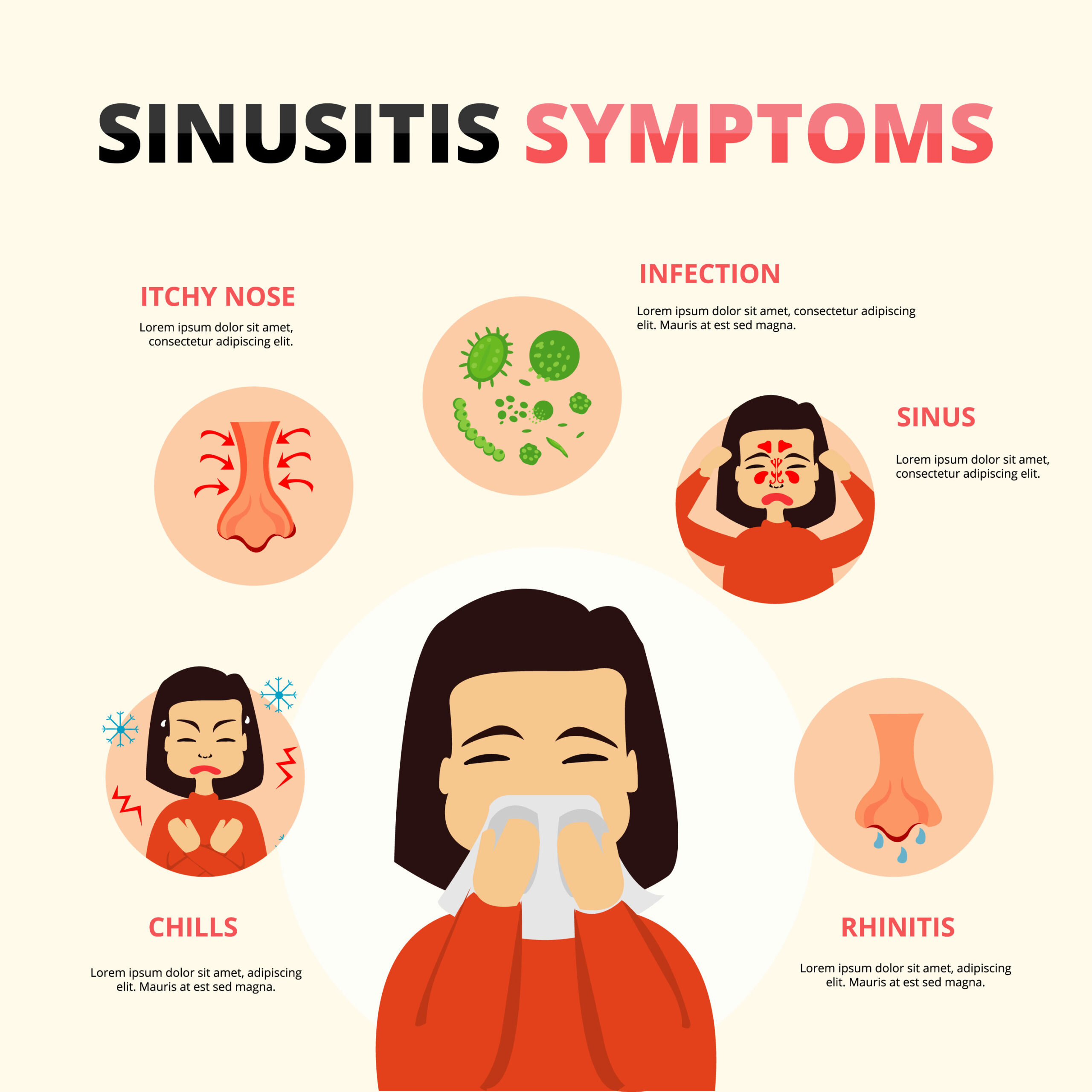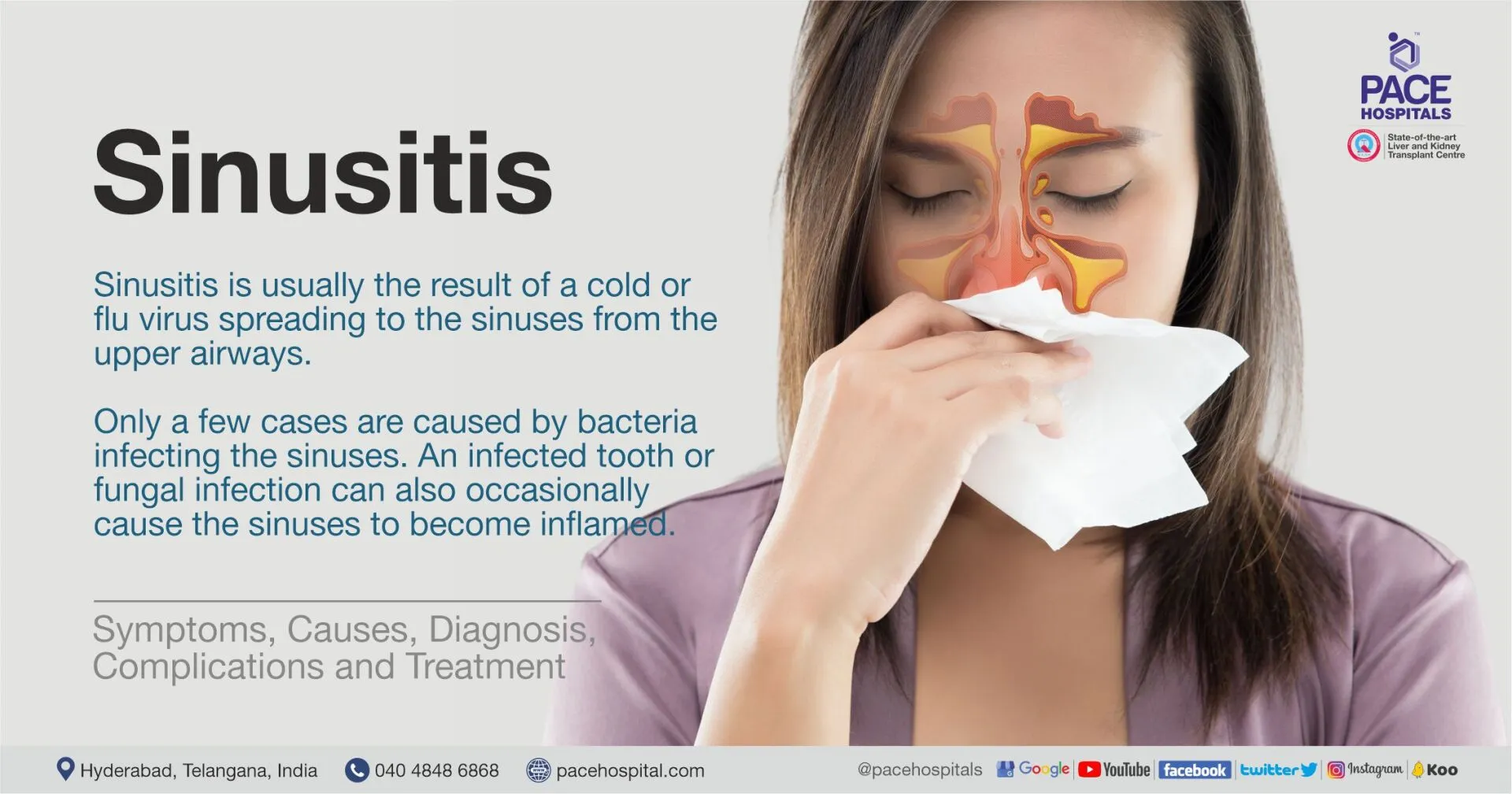Sinusitis, also known as rhinosinusitis, is a common condition in which the sinuses become inflamed and swollen. The sinuses are a group of air-filled spaces located in the facial bones around the nose and eyes. They are lined with a thin layer of tissue called the mucous membrane, which produces mucus to keep the nose and sinuses moist and free of bacteria and other particles. Sinusitis can be caused by a viral or bacterial infection, or by an allergic reaction, and it can be acute or chronic. Acute sinusitis usually lasts less than 4 weeks, while chronic sinusitis can last for 12 weeks or longer.
The symptoms of sinusitis can vary depending on the severity and duration of the inflammation. Acute sinusitis often causes facial pain, pressure, and tenderness, especially around the forehead, cheeks, and eyes. It can also cause headaches, fever, nasal congestion, a runny nose, and thick, discolored nasal discharge. Chronic sinusitis may cause similar symptoms, but they are typically milder and more persistent. Chronic sinusitis can also cause postnasal drip, bad breath, fatigue, and a reduced sense of smell or taste.
Sinusitis can be diagnosed by a medical professional based on a physical examination and a review of the patient’s medical history and symptoms. In some cases, imaging tests such as X-rays, CT scans, or MRIs may be necessary to evaluate the sinuses and rule out other conditions. Treatment for sinusitis depends on the underlying cause and the severity of the symptoms. Acute sinusitis caused by a viral infection usually resolves on its own within a week or two, and over-the-counter pain relievers and decongestants may be recommended to relieve symptoms. Antibiotics may be prescribed for acute sinusitis caused by a bacterial infection, but they are not effective for viral infections.
Chronic sinusitis may require more aggressive treatment, such as prescription-strength antibiotics, nasal corticosteroids, or other medications to reduce inflammation and improve airflow in the sinuses. In some cases, surgery may be necessary to remove blockages, repair a deviated septum, or enlarge the sinus openings to improve drainage. Lifestyle changes such as avoiding irritants and allergens, staying hydrated, and using a humidifier or saline nasal spray may also help relieve symptoms and prevent sinusitis from recurring.
While sinusitis can be uncomfortable and disruptive, it is usually not a serious condition and can be effectively treated with proper medical care. However, in rare cases, complications of sinusitis may arise, such as the spread of infection to the brain, eyes, or other parts of the body. Therefore, it is important to seek medical attention if symptoms persist or worsen, or if new symptoms develop.
In conclusion, sinusitis is a common condition that can be caused by a variety of factors and can lead to uncomfortable symptoms such as facial pain, pressure, and congestion. The treatment of sinusitis depends on the underlying cause and the severity of the symptoms. With appropriate medical care, most cases of sinusitis can be effectively treated and managed, and complications can be prevented. If you suspect that you may have sinusitis, it is important to consult with a medical professional to receive an accurate diagnosis and appropriate treatment.

